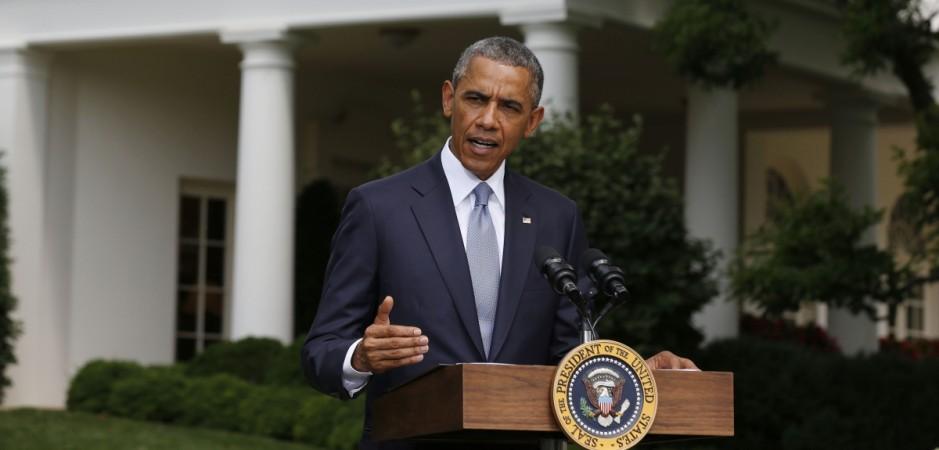
The US government has said that Russia violated a 1987 treaty by testing a nuclear cruise missile – an event that is likely to escalate the tensions between the two countries that have already reached the highest level.
This comes after Russia tested a new ground-launched cruise missile, breaking the Intermediate-Range Nuclear Forces Treaty that President Ronald Reagan signed with the then Soviet leader Mikhail Gorbachev, according to the Obama administration.
The confrontation comes at a highly tensed time between the cold-war era foes, over Russia's alleged intervention in Ukraine and also the fact that Putin granted asylum to US fugitive and former National Security Agency contractor Edward Snowden.
The bilateral agreement signed 27 years ago had banned medium-range missiles with a range of 500 to 5,500 km (300 to 3,400 miles).
The Obama administration in the past, has expressed concerns about possible violations of the agreement. But this is the first time the United States has formally accused Russia of doing so. The tension comes as the downing of the Malaysian Airlines Flight MH17 in Ukraine has been a subject that has triggered allegation and counter-allegations between Washington and Moscow.
An unnamed senior US official said in a statement that the testing of the missile was "a very serious matter, which we have attempted to address with Russia for some time now."
"We encourage Russia to return to compliance with its obligations under the treaty and to eliminate any prohibited items in a verifiable matter," the official said as quoted by BBC.
Officials have also said US president Barack Obama has written to Russian President Vladimir Putin over the matter and according to some reports Russian officials have responded by saying they have looked into the allegations and consider the matter as closed.
It is not clear when the alleged breach of the treaty took place, but media reports have noted that by raising the issue now, the US appears to be intensifying its pressure on Russia and thereby further isolating it from the international community.
This also comes as the European Union and the United States are set to announce new sanctions against Russia for what Washington claims to be mounting evidence that Russia continues to assist pro-Russian separatist forces in Ukraine.





!['It's not Mumbai traffic, it's air traffic': Suriya apologises to Mumbai media after paparazzi yelled At Him for making them wait for hours [Watch]](https://data1.ibtimes.co.in/en/full/806234/its-not-mumbai-traffic-its-air-traffic-suriya-apologises-mumbai-media-after-paparazzi.jpg?w=220&h=138)
![Bigg Boss 16-fame Sreejita De and Michael Blohm-Pape exchange wedding vows in dreamy Bengali ceremony [Inside Pics]](https://data1.ibtimes.co.in/en/full/806233/bigg-boss-16-fame-sreejita-de-michael-blohm-pape-exchange-wedding-vows-dreamy-bengali-ceremony.jpg?w=220&h=138)






